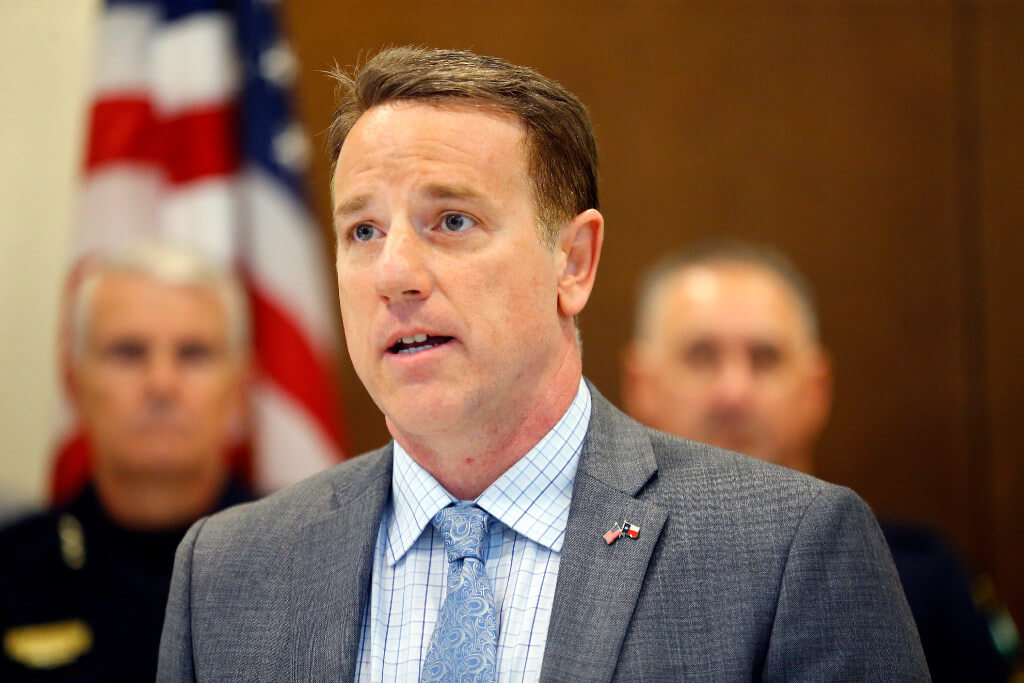By: Daniel McElroy
Following last weekend’s high profile neo-Nazi demonstrations and massive counter-protests in Charlottesville, Virginia, a Texas state legislator has continued to express support for a dangerous new anti-protest bill he authored that would protect drivers who run into crowds of protesters with their vehicles. While such legislation has found its way into several state legislatures in recent months, the Texas bill and Republican Representative Pat Fallon’s renewed support for it are troubling in light of last week’s events in Charlottesville, where neo-Nazi sympathizer James Fields drove a car into a crowd of protesters, killing Heather Heyer and injuring several others in what the Charlottesville mayor called “a terrorist attack with a car used as a weapon”.
The new Texas bill, HB 250, was filed on July 20th and is now in committee awaiting a hearing that would put it on the House floor calendar. It would exempt drivers who strike protesters from liability, as long as the vehicle operator is deemed to have been exercising “due care” at the time of the incident. Regardless of reasonable sounding wording (similar bills often begin with text proclaiming their support for “individuals to exercise their rights of free speech, press, and peaceful assembly”) and how that may be interpreted by the courts, there is a larger and more dangerous issue at play here: the signaling effect of protection for domestic extremists. As the National Lawyers Guild states regarding such types of anti-protest legislation:
Since January, state legislatures across the U.S. have seen a trend of increasingly ludicrous anti-protest legislation, with a number of bills that included specific protections for motorists who hit protesters. The Voice Project has set up a page to track each one of the bills to help overcome the chilling effect of the “atmosphere of confusion” regarding their status. Still, some bills have made it through. Several states have passed significant new anti-protest legislation, such as one in South Dakota creating ill-defined “public safety zones” where trespassing fines are significantly increased.
These types of bills chill free expression through financial intimidation, much as the arrests, civil forfeitures, and court costs did in 2013 under Scott Walker in Wisconsin with the unconstitutional arrest and detention of hundreds for simply singing protest songs in a public venue. The widespread support for the current anti-protest legislation by Republican lawmakers even in states that were able to defeat the bills relatively quickly is troubling, and neither state-sanctioned financial intimidation nor signaling protection to domestic extremists should be allowed to stand due to their adverse and chilling effects on constitutionally guaranteed rights to free assembly and expression.
Luckily, the tide of anti-protest bills has slowed in the past few months, since most state legislatures began their summer recesses—in most places, that is, except for Texas. HB 250 is far from the first bill of its kind to make it into committee in a state legislature this year, but Representative Fallon doubling down on his proposal after the Charlottesville attack is reprehensible and informative. The day after Heyer’s death, Fallon defended his bill in Facebook and Twitter posts (which have since been deleted). He accused the “Far Left”—presumably including participants of the Charlottesville protest where Heyer died—of not knowing “the difference between lawfully protesting in a street and illegally blocking a [highway]”.
The recent spate of anti-protest legislation introduced to state legislatures across the country smacks of coordinated efforts of the type the right-wing funded American Legislative Exchange Council (ALEC) is known for (see National Lawyers Guild, New Anti-Protesting Legislation: A Deeper Look), but in any case, The Voice Project stands against currently proposed anti-protest legislation because of the impingement on free assembly and free expression. Harsher penalties out of line with infractions are often used to have an intimidating effect on those who would look to exercise rights of free assembly and free expression, and extra protections for those who injure or kill peaceful protesters are clearly not what is needed. We have seen this tactic—intimidating demonstrators by signaling protection for violent civilian opposition—used over and over again in other countries where we work, and it is not a model that should be replicated in the U.S. We urge you to join us in voicing disagreement with Fallon’s bill.

